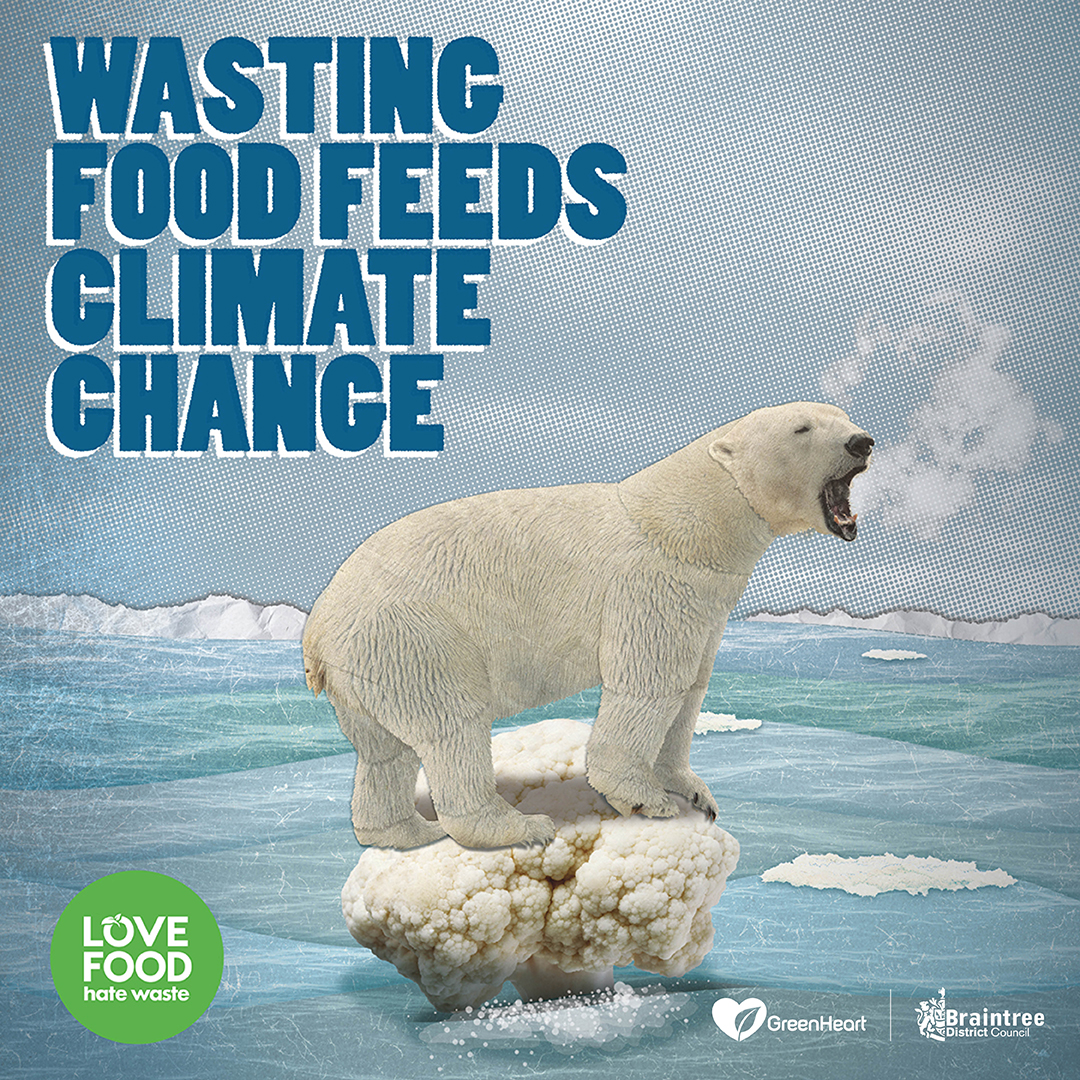
Braintree District Council is supporting Food Waste Action Week and sharing messages about the impact of food waste on climate change.
The second annual Food Waste Action Week begins today, Monday 7 March. It will raise people’s awareness of the huge impact of household food waste on climate change and share practical advice, food savvy behaviours and tips on how we can all easily reduce the food we waste in our homes.
We throw away 6.6 million tonnes of household food waste a year in the UK. This food waste is responsible for nearly 25 million tonnes of CO2 emissions, equivalent to 5.4% of the UK's territorial emissions. The majority, 4.5 million tonnes is food that could have been eaten and is worth approximately £14 billion (or £60 a month an average family with two children). It requires an area almost the size of Wales to produce all the food and drink currently wasted in the UK.
In September 2021, Councillors agreed Braintree District Council’s Climate Change Strategy and Action Plan. The strategy builds on the work the council has already undertaken over the years to help the environment and address climate change. Since 2005, the Council has cut its own emissions by half and has worked with others to deliver a range of initiatives to mitigate the impacts of climate change across the District, including energy saving boilers, solar panels, encouraging people to waste less and recycle more, supported businesses to implement energy efficiency measures, flood alleviation schemes and habitat creation.
Cllr. Wendy Schmitt, Cabinet Member for Climate Change and The Environment at Braintree District Council, said: “Every bit of wasted food has an environmental impact, whether its transport, fuel, water, energy - it all adds up. While governments and businesses have an important part to play, wasting food in our own homes contributes towards nearly 25 million tonnes of CO2 every year that UK households produces, due to food waste. For the planet and for future generations - we need to save food from the bin by changing the way we buy, store, and use it.”
Love Food Hate Waste runs an annual survey of people’s habits and knowledge around food waste. This highlighted that 81% of UK citizens are concerned about climate change, but only 32% see a clear link with food waste. The survey helped to inform the theme of the Week and the development of materials to motivate people to act. This year, Love Food Hate Waste found that the public’s relationship with its freezers has become particularly frosty with many people not knowing how to safely freeze and defrost their food.
Sarah Clayton, Love Food Hate Waste said: “Getting to grips with freezing and defrosting are big factors in preventing food from going to waste at home. At a time of rising food prices alongside huge public concern about climate change, tackling food waste at home is one way we can all make a difference and save money. For the average family with children, the cost of binning food can be more than £700 per year. So, Food Waste Action Week is all about avoiding being savvy in how we store but then use our food.”
Love Food Hate Waste is keen to show that used properly, the freezer is the king of the kitchen. In fact, freezing and defrosting just three key meat items that are commonly not used in time (fresh chicken, bacon, and sausages) could reduce waste of those items by as much as 15,000 tonnes per annum. And, when it comes to defrosting, busy households can avoid a lengthy overnight defrost by using their microwave instead – as people use a toaster to defrost sliced bread from the freezer.
Working together, we can prevent food being wasted needlessly and protect the planet.
To view Braintree District Council’s Climate Change Strategy visit: https://www.braintree.gov.uk/advice-environment/climate-change
Love Food Hate Waste aims to raise awareness of the need to reduce food waste and help the UK public act. It shows that by doing some easy practical everyday things in the home we can all waste less food, which will ultimately benefit the environment, and our pockets too. Love Food Hate Waste is managed by WRAP.
